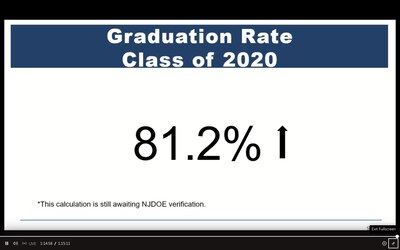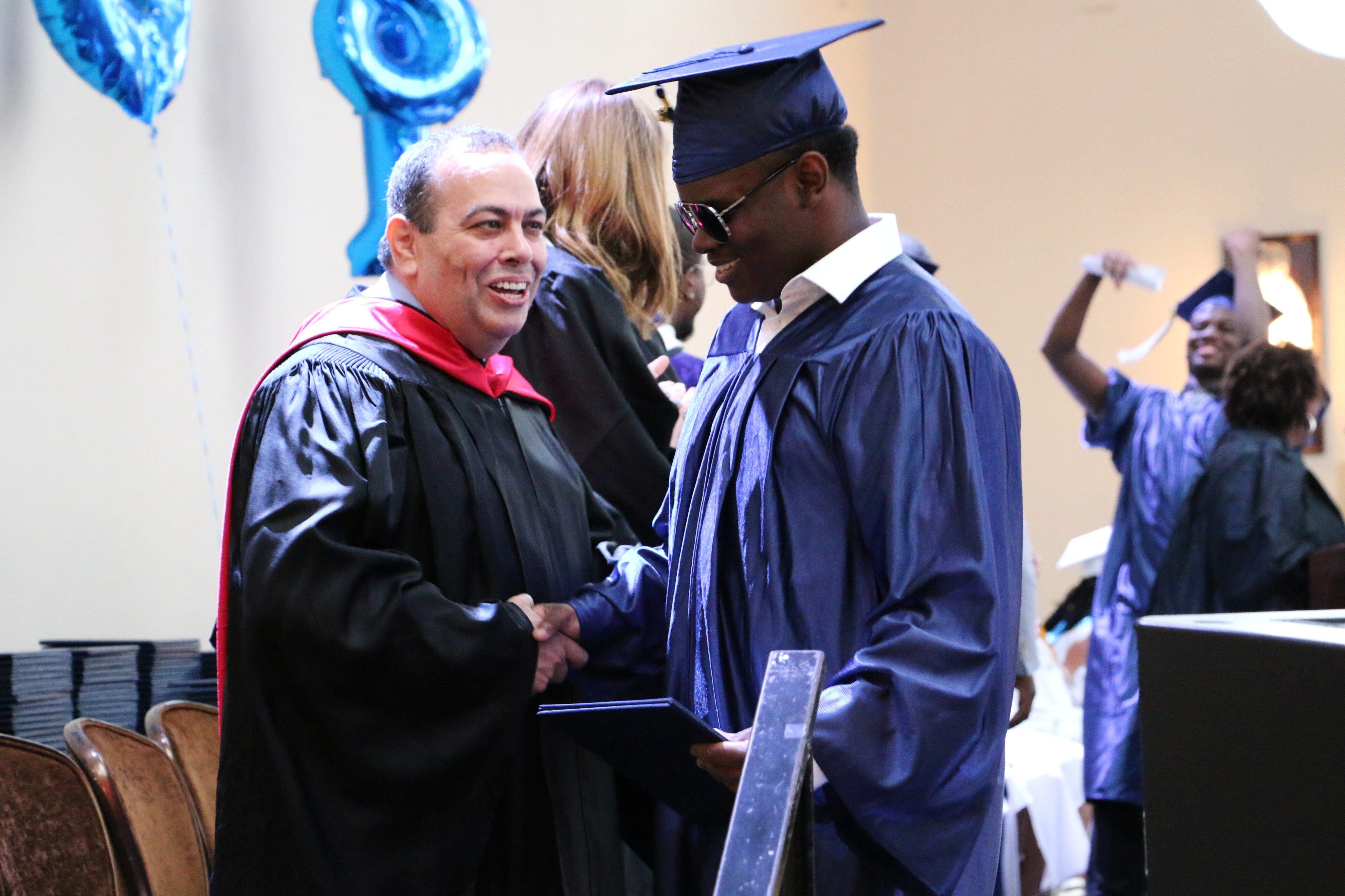Newark’s on-time graduation rate reached 81% in 2020 — the highest it’s been in decades, district officials said.
The milestone came after the state eased graduation rules in response to the pandemic, helping push Newark’s rate up 5 percentage points, year over year, according to the district’s preliminary numbers.
“This is the first time in over the last 20 years that we have seen that graduation rate, albeit preliminary,” Superintendent Roger León said during Thursday’s school board meeting, adding that the state must still verify the rate.

New Jersey students must earn a minimum number of credits and pass standardized tests in math and English in order to graduate. However, the state waived the assessment requirement in April after the coronavirus pandemic forced the cancelation of state testing.
The rule change also spared students who had not yet passed the tests from completing an appeals process. That likely benefited many students in Newark, where more than 20% of students in the class of 2019 used the appeals process to meet the English test requirement and more than 30% used it for math.
“Zero students were denied graduation due to failure to meet graduation assessment requirements,” León said Thursday.
In 2019, about 76% of Newark seniors graduated in four years, which is considered on time. The statewide rate was 90.6%.
León first shared that the preliminary 2020 graduation rate had risen to 81.2% at an all-staff meeting earlier this month. On Thursday, he said the final rate “could in fact be higher” as additional students from the class of 2020 meet the requirements to earn a diploma.
“That is a monumental achievement for this district,” said board member A’Dorian Murray-Thomas. “It is a reflection of the brilliance that’s already here.”







